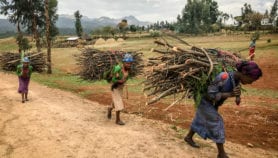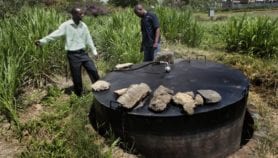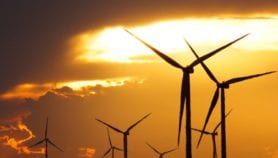By: Justice Baidoo
Send to a friend
The details you provide on this page will not be used to send unsolicited email, and will not be sold to a 3rd party. See privacy policy.
Francis Kantavooro has produced a locally assembled reactor that turns plastic waste into fuel such as gasoline, diesel, kerosene and domestic gas for homes in Ghana.
“Ghana spends [a lot of] money on plastic waste,” says Kantavooro. “When I was in the university as an engineer, I wanted to make a change. I started research into what the plastic waste could be used for and [how to] permanently get it out of the environmental system.”
Ghana produces 1.7 million tonnes of plastic waste annually, with only two per cent being recycled, according to the United Nations Development Programme.
“This is dangerous. It is a threat to the environment and even to agriculture,” says, Kantavooro who grew up in the Upper West region of Ghana.
The West African country has been battling plastic pollution. Several of its gutters have been left choked by plastics, prompting the country to take bold steps to tackle the menace. Ghana formally joined the Global Plastic Action Partnership — an initiative dedicated to eradicating plastic waste and pollution worldwide — this year, thus becoming the first African nation to do so.
“I started research into what the plastic waste could be used for and [how to] permanently get it out of the environmental system.”
Francis Kantavooro
Ghana’s Ministry of Environment, Science, Technology and Innovation is currently developing a national roadmap for sustainably managing and reducing the country’s plastic waste challenge as part of the partnership, while continuing to boost its economic growth.
Kantavooro’s reactor uses high temperatures between 300 and 900 degrees Celcius to heat plastics in the absence of oxygen to produce liquid. The process, called pyrolysis, generates liquid fuel such as gasoline, diesel, kerosene and domestic gas.
Since he began his project, members of the community collect plastic waste from all over and bring them to the reactor site.
“These plastic waste are then put into the reactor. The pyrolysis process takes place and fuel is produced. The bigger the capacity of the reactor the more plastic wastes it can take,” he adds.
The project is currently being trialled in the northern region of Ghana where illegal mining has caused environmental havoc to degraded lands. The project directly and indirectly provides jobs for over 150 people.
“Those who collect the plastic waste bring them to the project site. The waste is then weighed, and the collectors are paid 50 Pesewas, the equivalent of about US$2 cents a kilo. It is also improving the sanitation in the municipality,” he tells SciDev.Net. “The innovation uses one tonne of plastic to produce 800 litres of diesel in a day or even less. The production cost is currently 60 US cents for every dollar of fuel [produced].”
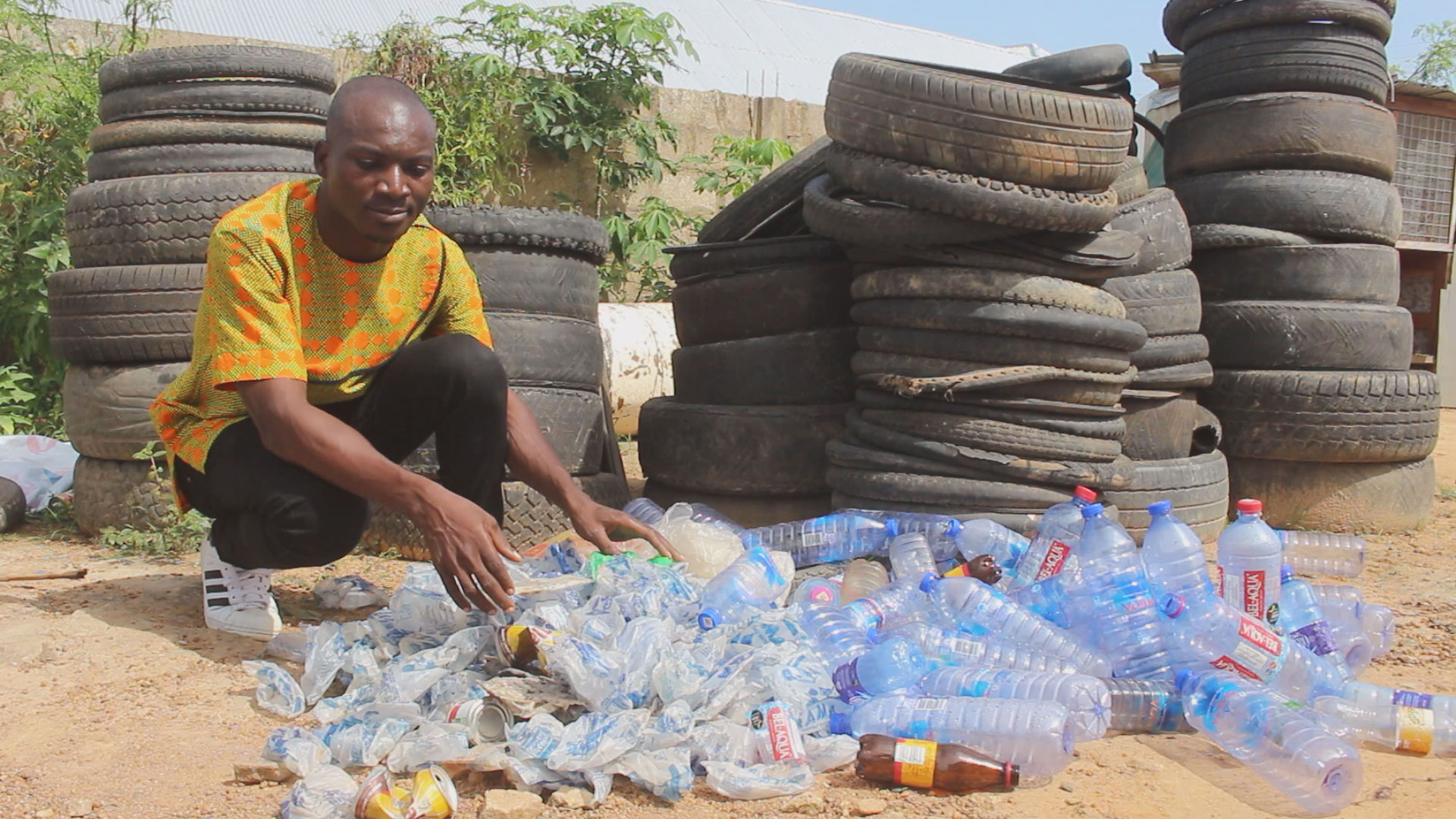
Francis Kantavooro is sorting out plastic waste at his factory ahead of fuel production
Kantavooro’s project is part of many initiatives that are currently being implemented in Ghana to engage illegal gold miners, many of whom have been put out of work following a national ban on illegal mining to protect water bodies and its dwindling forest cover.
In 2015 alone, Ghana imported US$477.4 million worth of crude oil. This means an alternative source of fuel would boost the country’s economy.
The United Nations Development Programme Global Environment Fund is supporting Kantavooro to refine his innovation to ensure it consumes lesser amount of fuel. George Ortsin, country manager of the United Nations Development Programme Global Environment Fund, says: “One of the things we are helping him to do is to reduce the thickness of the reactor to ensure that it takes less fire.”
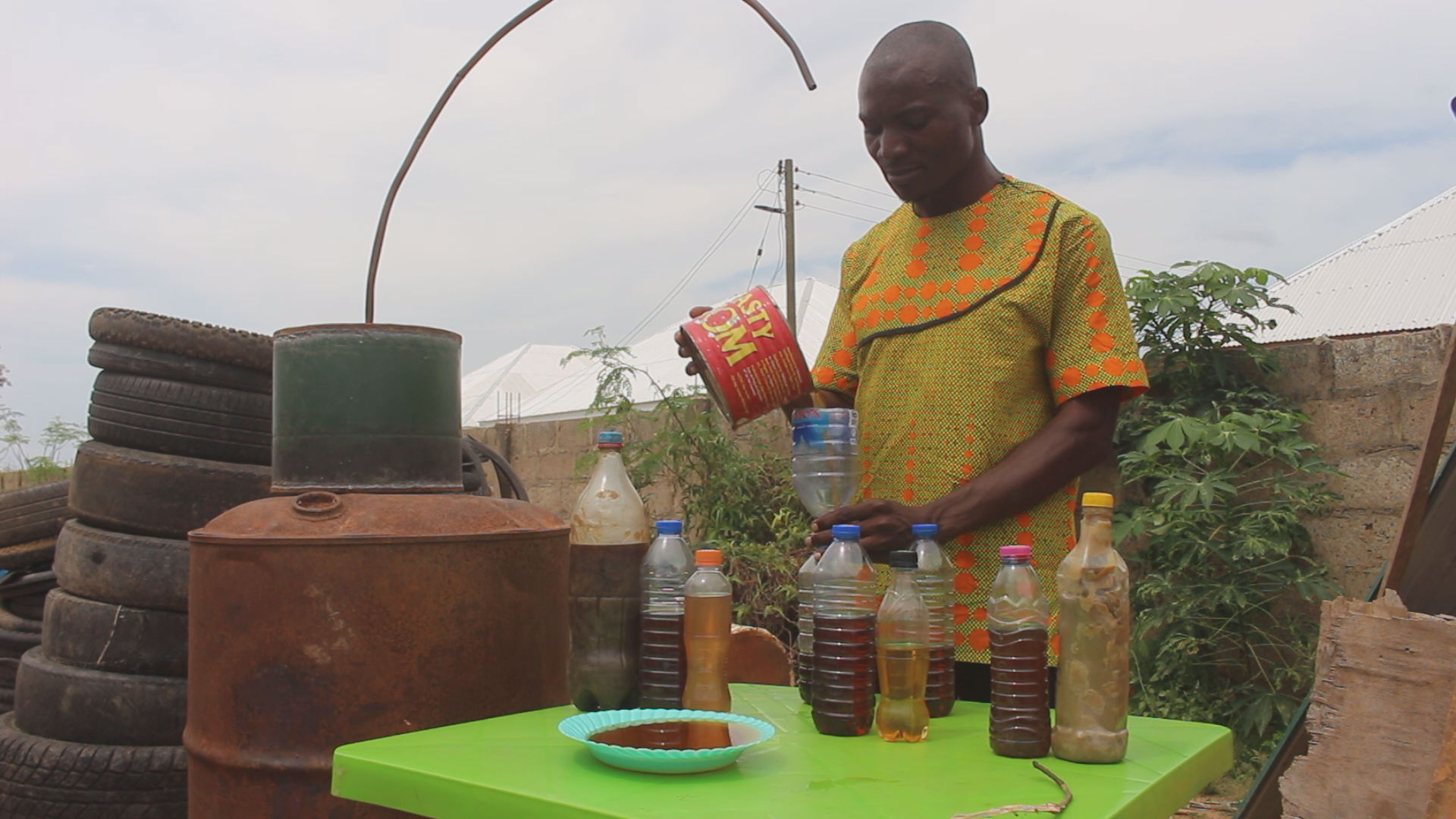


The innovator is storing fuel made from plastic waste in small containers
In Ghana’s Upper West region, where this innovation started, many people use motor bicycles as a means of transportation as bad roads discourage use of cars in the area.
Inussah Adam, who buys fuel from Kantavooro’s project for his motor bicycle thinks this technology could turn around economic livelihoods in the area.
“Fuel for motor bikes is very expensive here. If we are able to produce some locally as Kantavooro is trying to do, then I believe it can be cheaper and readily available,” he says.
Koblah Adediah, a resident of Wa in Ghana’s Upper West region, adds that he used to spend 11 Ghana cedis (about US$2) on fuel for his bike in a week. Since he started buying the fuel Kantavooro produces, he now spends around half of that amount.
“He is a young man who I know if given the opportunity can make a great change. If this project is supported [it] can generate thousands of jobs in the sanitation field. If help is given, this project will go a long way to improve the lives of Ghanaians, especially the people of Wa,” he says.
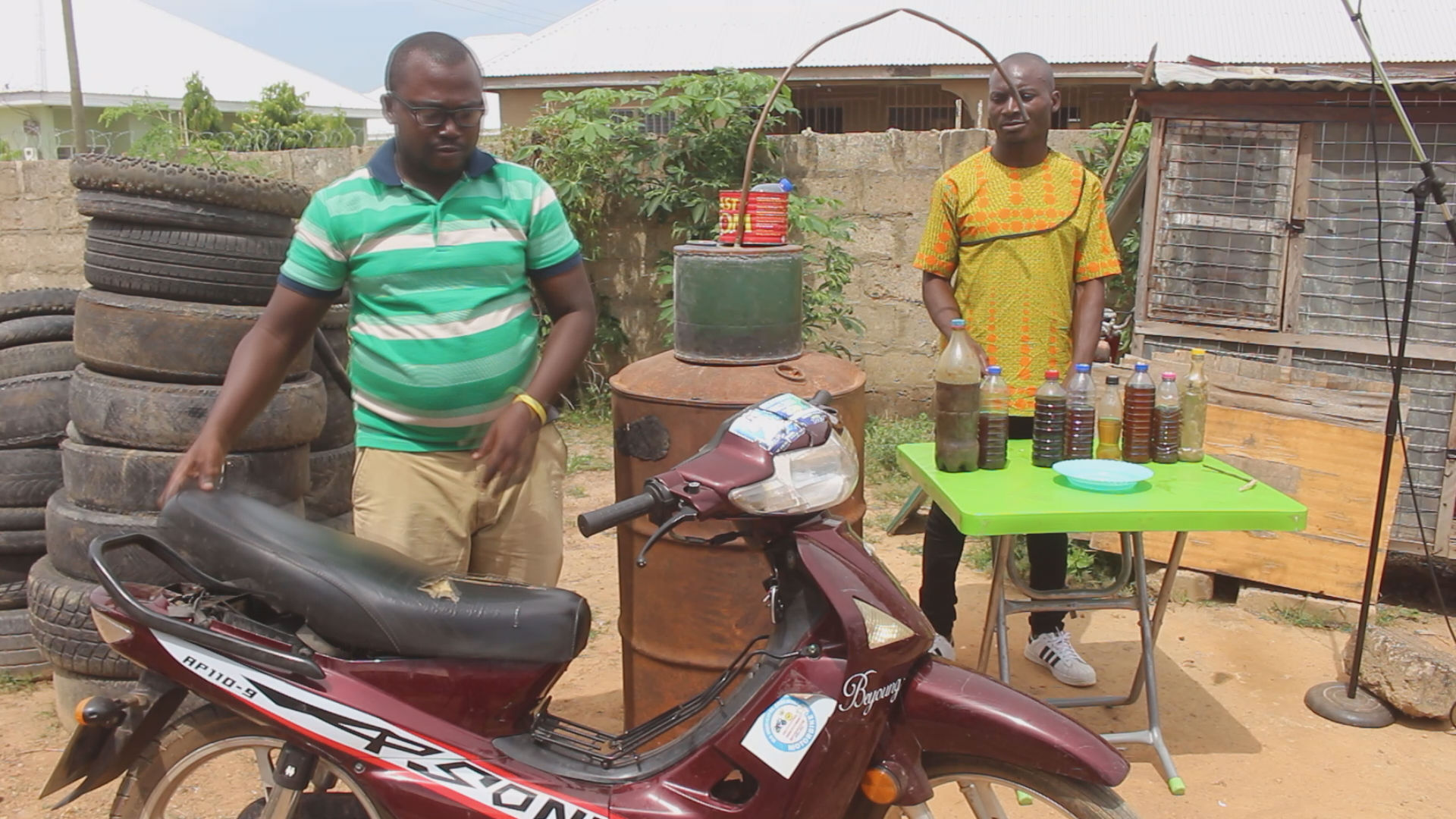


One of his clients at the factory to fuel his motor bike
Robert Dery Nagre, a senior lecturer in chemical engineering at the Kumasi Technical University in Ghana who has worked on a similar project in the past, says that this technology presents a golden opportunity for Ghana to deal with its plastic waste challenge in a way that makes economic sense.
“If we are able to scale it up to a level where we are able to produce higher volumes of fuel, that would mean we are collecting the plastic rubbers and then also solving energy needs,” he tells SciDev.Net.This may be viable in energy provision and economic returns. “The only cost that we would incur is the collection of the plastics. And if we are going to sell it, looking at the cost of fuel, then it’s very viable. The challenge is how to get the raw material in large quantity,” says Nagre.
This piece was produced by SciDev.Net’s Sub-Saharan Africa English desk.
More on Biofuels
News
Researchers help draft Senegalese biofuel law
[ABIDJAN] Senegal's government has called on the expertise of the country's researchers in drafting a ...07/03/12
News
Ghana ‘must embrace biogas’
Ghana's policymakers should embrace abundant and clean biogas as a source of energy, to curb its reli ...08/06/11
News
Sub-Saharan Africa news in brief: 3–17 December 2007
Below is a round up of news from or about Sub-Saharan Africa for the period 3–17 December 2007. ...20/12/07
Feature
Biofuel: Africa’s new oil?
Biofuel holds great promise for Africa but the research isn't yet in place to reap the rewards, or ...05/12/07
Opinion
Biofuels: benefits and risks for developing countries
Biofuels offer huge potential, but pose challenges best countered with strong and coherent development poli ...05/12/07




